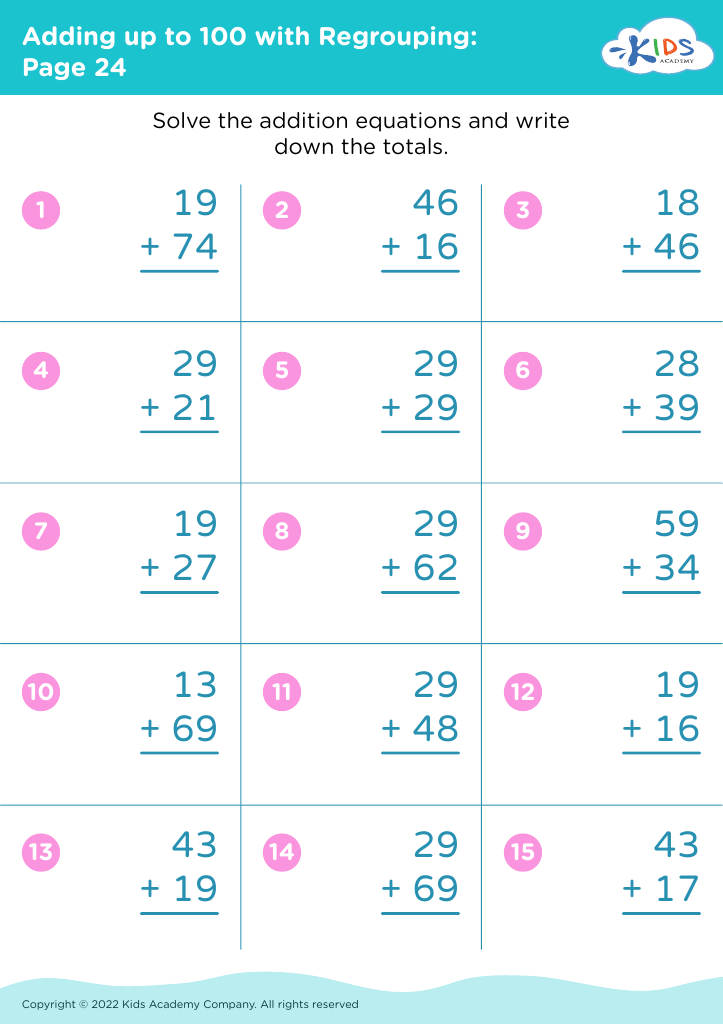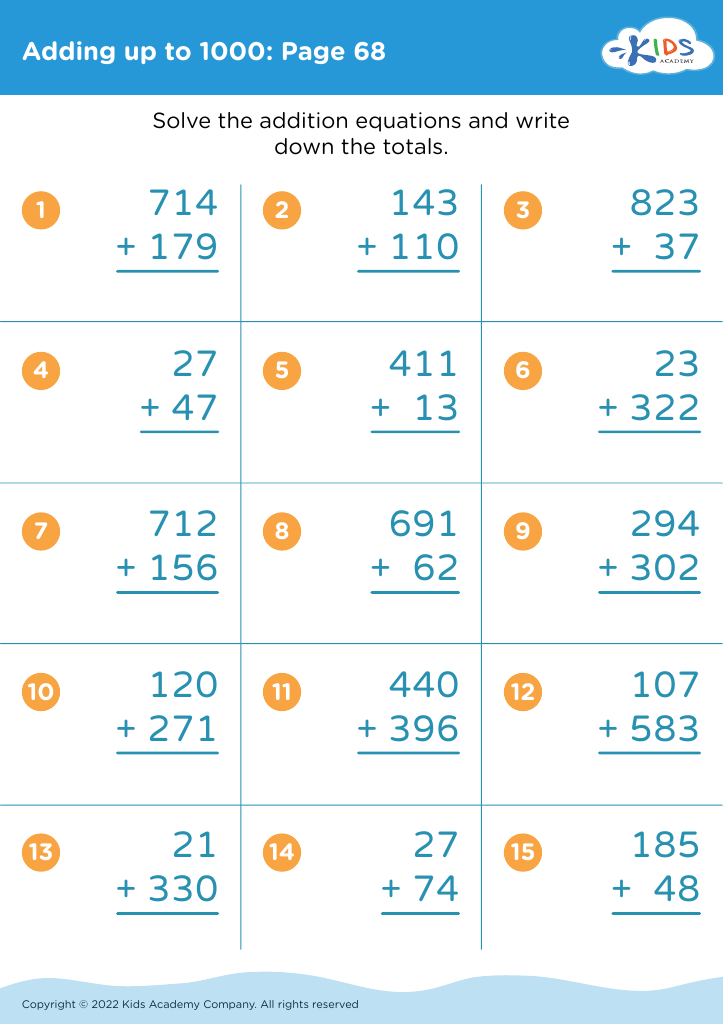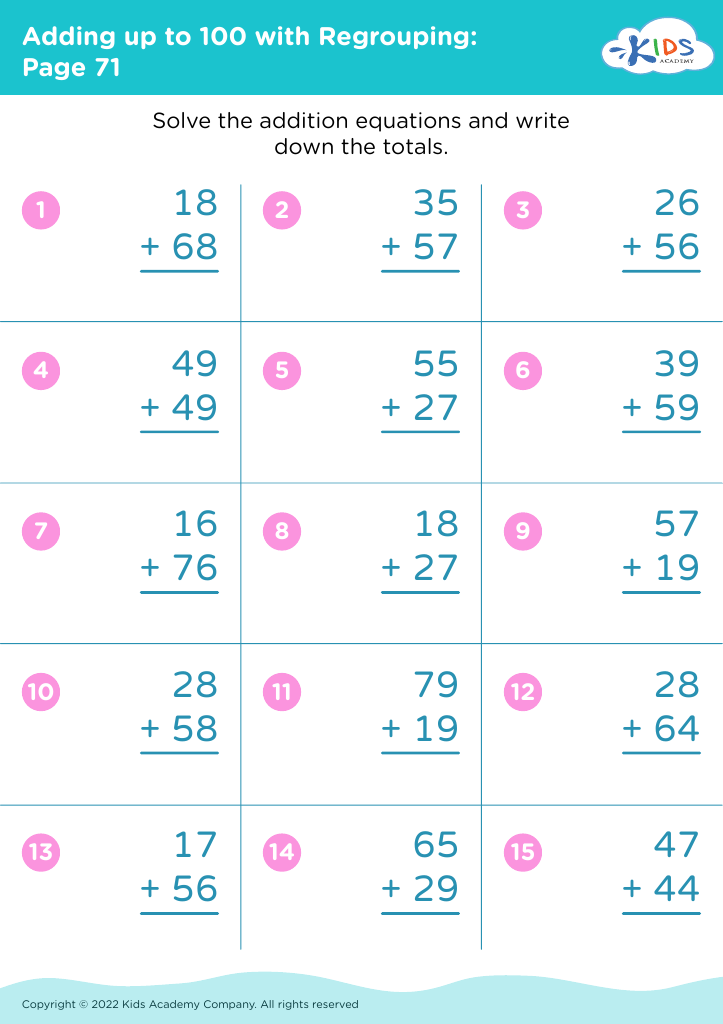Critical thinking skills Addition & Subtraction Worksheets for Ages 4-8
9 filtered results
-
From - To
Enhance your child's mathematical journey with our engaging Critical Thinking Skills Addition & Subtraction Worksheets, designed specifically for ages 4-8. These worksheets not only teach fundamental math concepts but also promote problem-solving and critical thinking. Each activity encourages children to think logically and creatively as they solve addition and subtraction problems in fun and engaging ways. With colorful illustrations and age-appropriate challenges, kids will enjoy learning while developing essential cognitive skills. Try our printable worksheets today and watch your young learners flourish in mathematics and beyond, building a strong foundation for their future education. Perfect for parents and teachers alike!
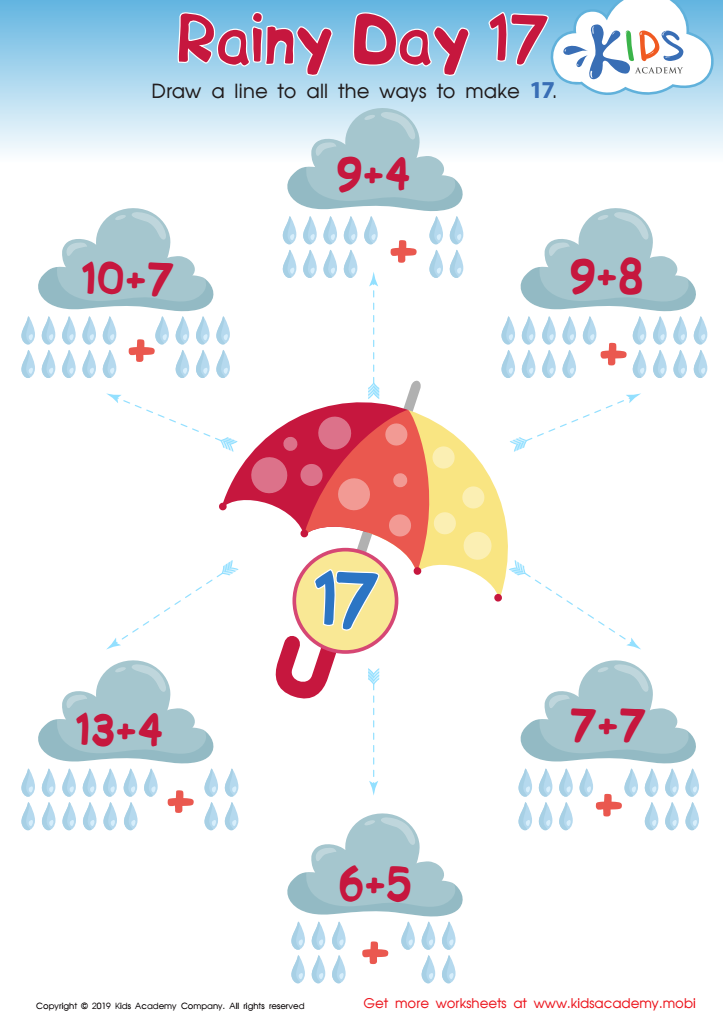

Rainy Day 17 Worksheet
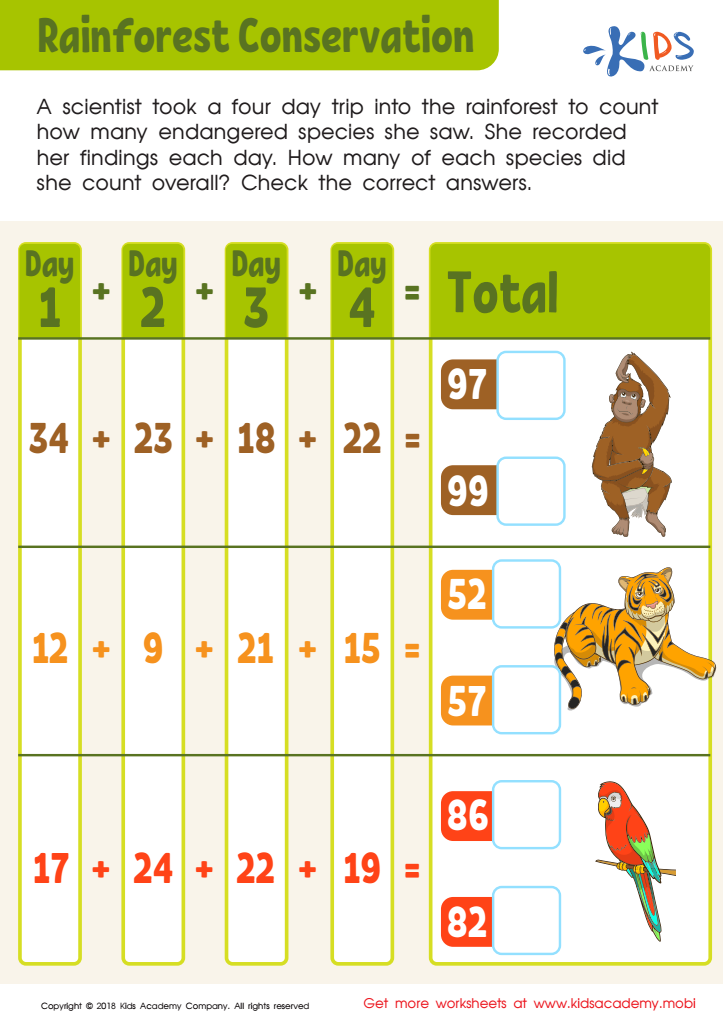

Rainforest Conservation Worksheet
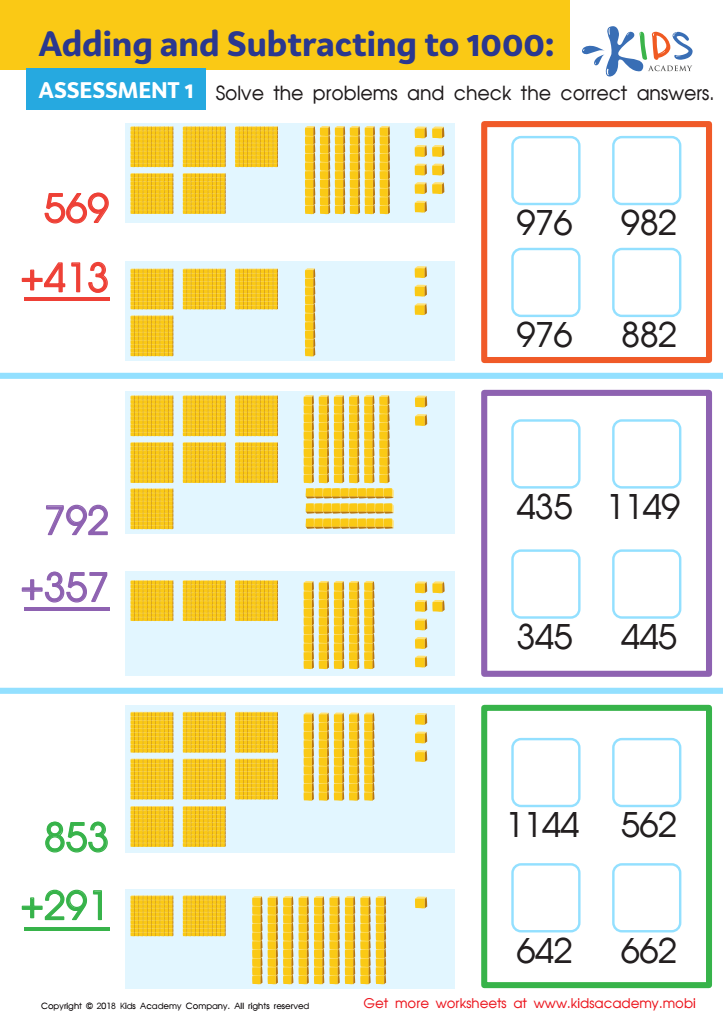

Adding and Subtracting to 1 Worksheet: Assessment 1
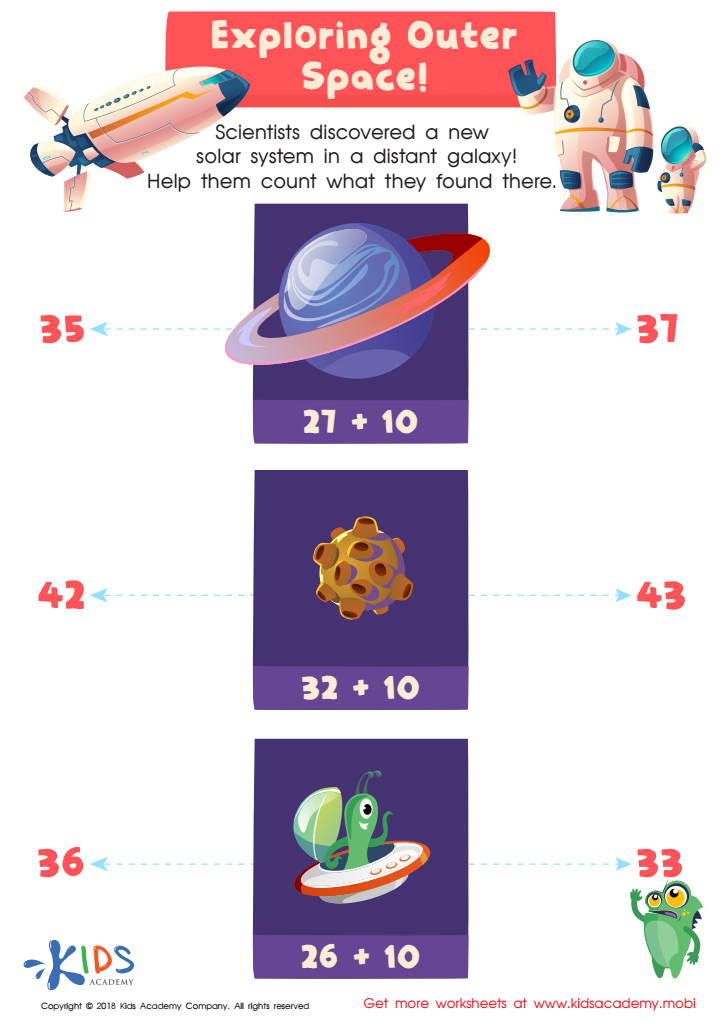

Exploring Outer Space Worksheet
Critical thinking skills in addition and subtraction are essential for children ages 4 to 8 as they lay the foundation for advanced mathematical understanding and problem-solving capabilities. At this developmental stage, children begin to grasp basic mathematical concepts, and fostering critical thinking helps them connect these ideas in meaningful ways.
Encouraging critical thinking in early math encourages children to explore different strategies for problem-solving rather than relying solely on memorization. For example, using visual aids, manipulatives, or real-world scenarios enables them to understand the "why" behind addition and subtraction, cultivating a deeper comprehension of numbers and relationships.
Moreover, these skills enhance their ability to think independently and make informed decisions, which are crucial not only in math but across all subjects and in everyday life. Analytical thinking also supports collaboration and communication, as kids discuss their methods and reasoning with peers.
Additionally, nurturing critical thinking early can foster a positive attitude towards learning. When students feel empowered to engage with and explore math concepts creatively, they are more likely to develop a lifelong love for learning. Parents and teachers play a pivotal role in guiding and supporting this process, making it vital for their engagement in nurturing these skills.
 Assign to My Students
Assign to My Students

